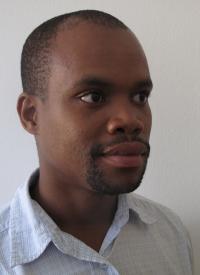Posted on February 14, 2011

It seems to me that our problems begin at the level of language. English is the language in which we are governed, we work, and in which we teach and are taught in formal education. It is the language of knowledge production in universities. Even in instances where we study these so-called indigenous cultural practices, artistic forms, philosophical traditions, etc. we have not even begun to pay attention to the concepts and vocabularies in which people conduct their rituals. Here I am calling what people do rituals even. If I paid attention to the term imisebenzi, and the in which ways space, time, relationships with the living and the dead are conceptualised by practitioners of these family/clan 'rituals' I imagine I could learn a lot about the things I am trying to understand. Even in universities we do not yet insist on the learning of languages, letting students get away with studying cultures in translation. The terminologies we impose are too blunt. They obscure a lot that needs to be carefully considered for a better understanding of our society and its pasts.
I think if we begin paying attention to language we can open the path to giving the future back its pasts.
Mbongiseni Buthelezi is the Archival Platform Ancestral Stories coordinator.